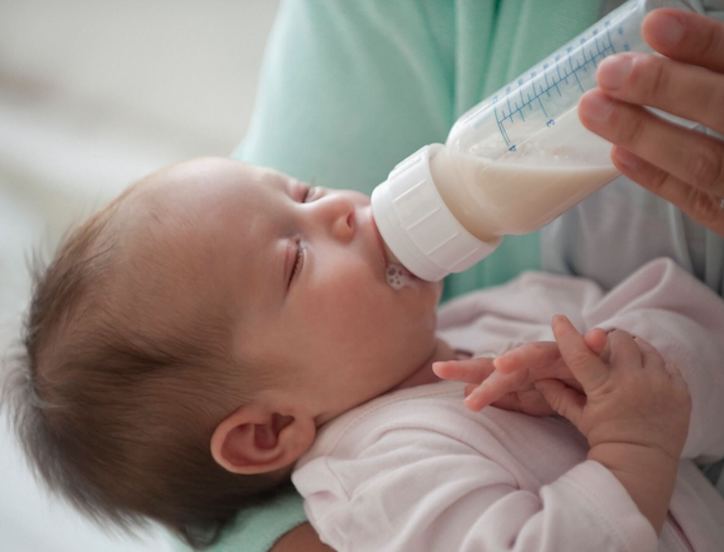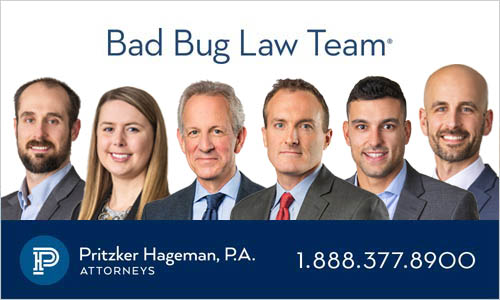Similac Cronobacter and Salmonella Newport illnesses are being investigated by the Centers for Disease Control and Prevention (CDC). At least four infants are ill after being fed the formula. Yesterday, the West Virginia Department of Health and Human Services reported that another infant was diagnosed with a Salmonella infection after ingesting the recalled powdered formula. That case is not included in the CDC total.

The CDC does not recommend testing infants for Cronobacter infection unless they have symptoms of meningitis or sepsis, even if they consumed recalled formula. Early symptoms of Cronobacter include excessive crying, poor feeding, a fever, and very low energy. Symptoms of meningitis or sepsis include temperature changes, jaundice, grunting breaths, and abnormal movements. The CDC does not recommend testing stool for Cronobacter. And the CDC does not recommend testing formula for Cronobacter contamination unless an infant has a diagnosed Cronobacter infection.
The investigation report does state that CDC is performing whole genome sequencing on Cronobacter bacteria isolated from patient samples. Those samples will be compared to the environmental samples taken at Abbott Nutrition’s Sturgis, Michigan facility that were positive for Cronobacter.
Despite the new Salmonella report from West Virginia, the CDC states that their “routine outbreak surveillance has not detected an outbreak of Salmonella illnesses linked to the case reported to FDA.”
Timeline of Similac Cronobacter Illnesses
From September 16, 2021 to January 5, 2022, the CDC received reports of three Cronobacter cases in infants that were “later found” to be linked to this ongoing investigation. Three infants in Minnesota, Ohio, and Texas were fed formula produced at the Abbott Nutrition plant before they got sick. The products included Similac Sensitive, Similar Pro-total Comfort, and Similac Advance. One infant who lived in Ohio died, but that death has not be definitely attributed to Cronobacter.
On February 16, 2022, the CDC asked clinicians and state and local health departments to provide information on other cases of Cornobacter associated with infant formula from November 2021 through the present. The government has received reports of more possible cases and is investigating to determine if these cases are linked to the recalled formula.
On February 17, 2022, the FDA released information about the infant illnesses, including the Salmonella case, that are associated with Similac, EleCare, and Alimentum powdered formulas produced by Abbott Nutrition at their Sturgis plant. A recall was issued that same day.
Cronobacter and Powdered Infant Formula
Powdered infant formula is not a sterile product. Manufacturers of these products say that it isn’t possible to make a sterile powdered version of this product. Ready-to-serve liquid formulas are sterile. The problem is that Cronobacter sakazakii is a sturdy pathogen that can live in very dry materials, in foods that are low acid, and foods with high salt content. It also resists cleaning with disinfectants by forming biofilms.
At a production facility, the powder can be contaminated in two ways. The product can be made from contaminated raw materials. If the formula touches a contaminated surface in the manufacturing environment it can be contaminated. Or it can be contaminated at home or “elsewhere” once the container is opened.
If you are having difficulty finding formula for your child, contact your doctor. Do not buy powdered infant formula from outside the United States because it could be counterfeit.
Experts recommend that mothers breast feed their infants, if possible. Sterile ready to use formula is also safe. If you do use powdered formula, follow CDC recommendations to make this product as safe as possible. And consult with your doctor and take your child to see a healthcare provider if they do become sick. If your child is diagnosed with a Cronobacter infection, save the formula you used in case investigators want to test it.

If your infant has been sickened with a Cronobacter or Salmonella infection after feeding him or her powdered infant formula, please contact our experienced attorneys for help at 1-888-377-8900 or text us at 612-261-0856. Our firm represents clients in lawsuits against grocery stores and food processors, and families in wrongful death cases.





since Similac advance also included in that, how we be sure and trusting infant still consume that formula? even though said only barcode start 39 and 25. many Similac still sold by all groceries Walmart, Kroger, Target. Is there any way to checking the ingredients? I really not feeling safe to let baby consume this formula anymore.. Please advise. I really want to return all this product in groceries
At this point the only thing to do is check the lot numbers and expiration dates for the recalled formula. If you don’t feel it is safe, please talk to your pediatrician. Similac formula that is not recalled is still being sold, but if you do see recalled product on the shelves tell the store manager.